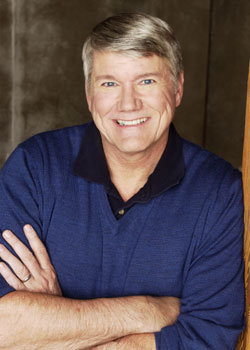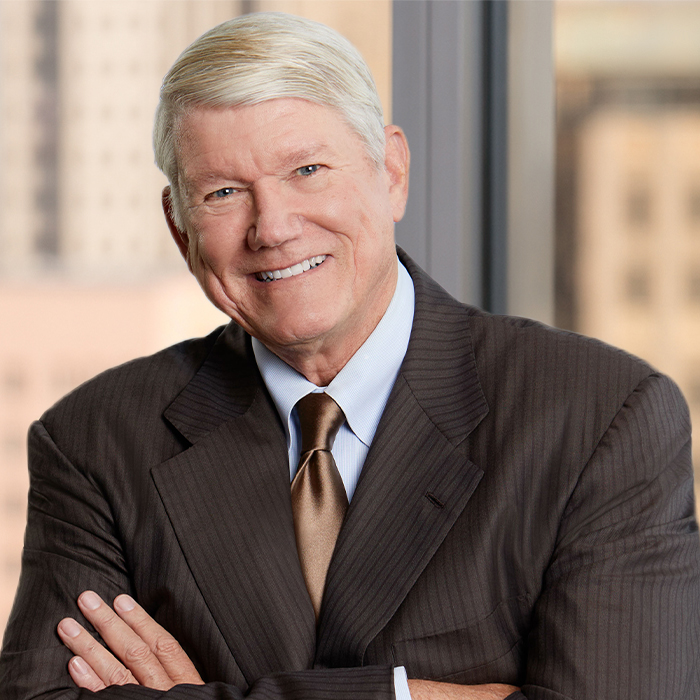You don’t have to be a big name to get Chip Babcock‘s attention.
Yes, the prominent litigator has had more than his fair share of celebrity clients — Oprah Winfrey, Dr. Phil McGraw, Diane Sawyer, Warren Buffett, Bill O’Reilly, and even George W. Bush, back when he was the president of the Texas Rangers rather than the United States.
 Still, when Chip looks back on his most memorable cases and clients, he never forgets one that featured no names in lights, but just two boys in trouble.
Still, when Chip looks back on his most memorable cases and clients, he never forgets one that featured no names in lights, but just two boys in trouble.
It was a case he got involved in through Legal Services of North Texas, a nonprofit organization that helps economically disadvantaged families with legal issues. A drug-addicted father had kidnapped his two young sons, taking them away from their mother and into a dangerous underworld. Chip tracked down leads until he located the boys.
“They were living in a crack house when I found them,” he says. “I was able to return the boys to their mother and terminate the father’s parental rights.”
It wasn’t the first or last time Chip has gone above and beyond for a client. Being a litigator, according to his definition, requires long hours, constant “on call” status, and travel to wherever is needed — whether that’s across the globe or into less than savory neighborhoods.
“You have to see the big picture,” Chip says. “You have to work every angle of the case. And you have to be there for the client — before, during, and after the trial.”
Sometimes that commitment is made easier when the case involves a personal interest. For Chip, communications and media cases — and especially First Amendment issues — hit close to home.
“My father worked for The New York Herald Tribune, and I was a journalist before I went to law school,” he says. “The First Amendment practice is interesting because it is so important to our democracy.”
Chip demonstrated his belief in the importance of a free press when he represented CNN in the aftermath of Hurricane Katrina. Just days after the disaster, the Federal Emergency Management Agency (FEMA) announced it would ban all press coverage of the recovery of victims in the New Orleans area. On behalf of CNN, Chip and his team filed a case in federal court and received a temporary restraining order against the press ban — in a single day.
“You have to be there for the client — before, during, and after the trial.”
— Chip Babcock
That kind of quick action, absolute commitment, and constant client accessibility would be a tall order for many. For Chip, it’s all in a day’s work.
